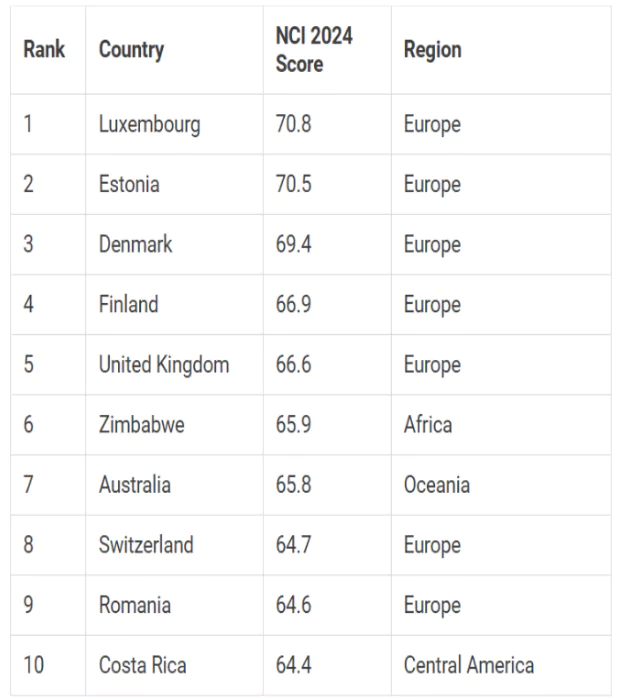India ranked 176th out of 180 countries on the 2024 Global Nature Conservation Index (NCI), scoring 45.5/100, alongside low-ranked countries like Kiribati, Turkey, Iraq, and Micronesia.
Key Findings on India from Global Nature Conservation Index

- Declining Environmental Performance: India’s Environmental Performance Index (EPI) score has deteriorated over the last decade, underscoring the need for enhanced environmental policies and conservation practices.
- Reason for India’s Poor Ranking: The index attributed India’s low ranking mainly to rising threats to biodiversity and the inefficient management of land.
- Conservation Project Concerns: The Great Nicobar Island Development Project has drawn criticism for its potential adverse impacts on local ecosystems, which include 96 wildlife sanctuaries, 9 national parks, and 1 biosphere reserve.
About Global Nature Conservation Index (NCI)
- Launched in October 2024, NCI assesses environmental protection across 180 countries based on four pillars:
- Land Management
- Threats to Biodiversity
- Capacity and Governance
- Future Trends
- It evaluates these pillars using 25 performance indicators.
- Developed by: The index was developed by the Goldman Sonnenfeldt School of Sustainability and Climate Change at Ben-Gurion University, in collaboration with BioDB.com, a non-profit for biodiversity data.
Enroll now for UPSC Online Classes
Key Conservation Issues in India
- Overexploited Fisheries: 34.5% of fisheries in India’s Exclusive Economic Zone (EEZ) are overexploited.
- Weak Legislation: India ranks 122nd in effectiveness of laws and regulations for natural resource management and biodiversity.
- Forest Conservation Concerns: The Forest Conservation (Amendment) Act, 2023 (FCAA), facilitates commercial activities in forest areas and exempts certain infrastructure projects from environmental assessments.
- Significant deforestation, losing 23,300 km² of tree cover from 2001 to 2019.
- Risk to biodiversity: Rising biodiversity threats, with 15.9% of marine species and 13.4% of terrestrial species at risk (IUCN Red List).
Recommendations for Improvement
- Increase government funding for tiger reserves and compensation programs for local communities.
- Address buffer zone management and connectivity in conservation efforts for sustainable, long-term results.
- Shift toward renewable energy and enhanced energy efficiency across industries and infrastructure.
- Implementation of carbon pricing and sustainable land use practices.
- Maintenance and expansion of carbon sinks (forests and wetlands).
![]() 28 Oct 2024
28 Oct 2024

